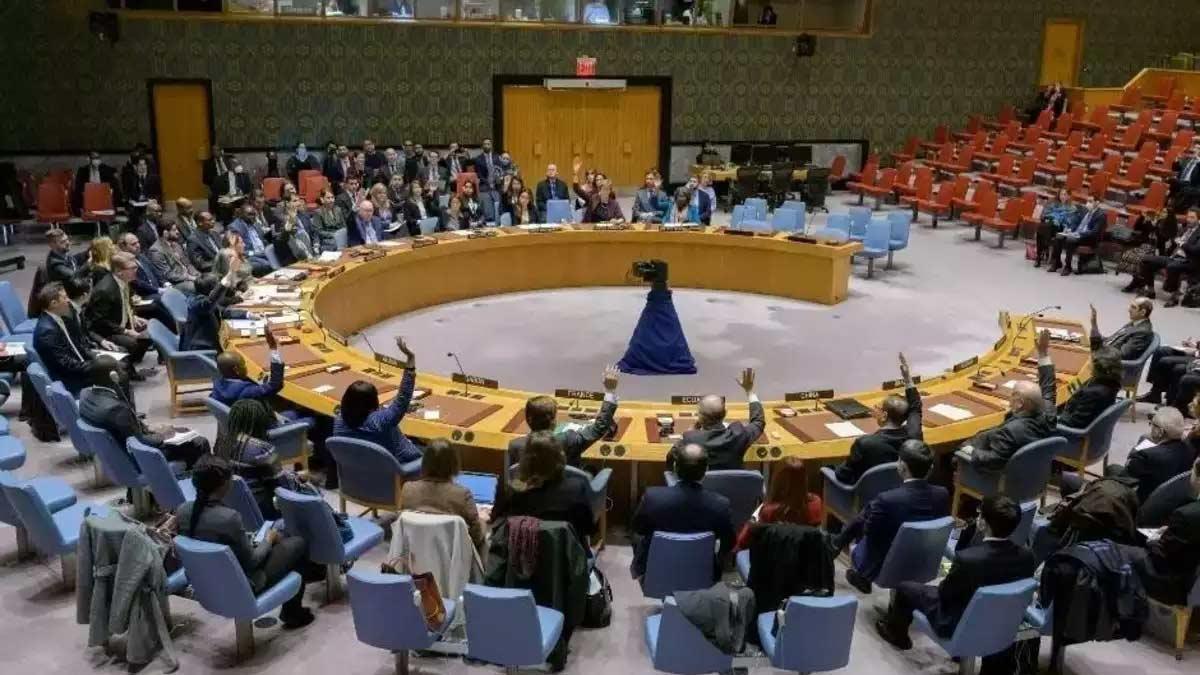India wants the opponents of the expansion of permanent membership in the UN Security Council and Africa's denial of "rightful place" to be taken to task.
People within the United Nations who still have the courage to oppose the expansion of permanent membership and deprive Africa of her rightful place must be taken to task, Wednesday said Mr. R. Ravindra, Charge d'Affaires in India's UN Mission.
"The continued exclusion of Africa from permanent membership is a blemish on the collective integrity of the Council," Ravindra said during the High-Level Open Debate on Peacebuilding and Sustaining Peace, which this month's President of the Council, Sierra Leone, convened.
India has remained consistent in its support for permanent African representation in a reformed Security Council as it supports the African consensus for two permanent seats with increase in the elected seats from three to five, he said, noting that about 70 per cent of the peacekeeping mandates of Council is focused on Africa.
Reform efforts have floundered for almost two decades, but are now given renewed impetus by African countries, which want action before the UN turns 80 next year.
A 12-member coalition, Uniting for Consensus is blocking the reform process—procedural tricks are led by Italy but include Pakistan and Canada.
Ravindra also rejected an effort by Pakistan's Permanent Representative, Munir Akram, to make the Kashmir issue equal to the Palestine issue.
"We have seen a delegation in this august body repeating the most audacious and false claims about my country. I will not answer on account of time and would not like to dignify these by answering. Let me say, nothing but contempt deserves such comments," he said.
Although not directly naming Pakistan, Ravindra's remarks were clearly aimed at Akram, who had said, "The consequences of foreign occupation are nowhere as clear as in occupied Jammu and Kashmir and in Palestine."
With not many nations evincing interest to the stand taken by it to the issue of Kashmir, Islamabad has been trying hard—far from successfully—relating it with the Palestine matter that finds more takers.
He reiterated that "terrorism is a global challenge, impinging not only on matters of peace and security but on development too," and asked for a unified international convention on anti-terrorism.
He said an efficient global mechanism for conflict prevention must involve an in-depth approach to counter-terrorism and that there ought to be resources for promoting socio-economic development and reform of international financial institutions for them to be more representative of the Global South.
"Development partnerships with countries in the Global South, that run into a cumulative vale of over $40 billion, are a surefire indication of this intent," commented Ravindra. India hosted once more at the just concluded third Virtual Voice of the Global South Summit, where the Prime Minister, Narendra Modi, proposed a global compact for development.
Overall, Sierra Leone's Foreign Minister Alhaji Musa Timothy Kabba said under his stewardship of the meeting, "the world remains on fire from both national and international conflicts" worsened by "a complex interplay of geopolitical tensions, economic disparities, climate change, and the proliferation of weapons."
He added that all countries must work in tandem to meet these multidimensional challenges, wherein development will have an important role.
Read also| Blinken Concludes Mideast Visit Without Cease-Fire; Urges 'Time Is of the Essence'
Read also| I gave my best to you, says Biden at farewell during Democratic National Convention


















